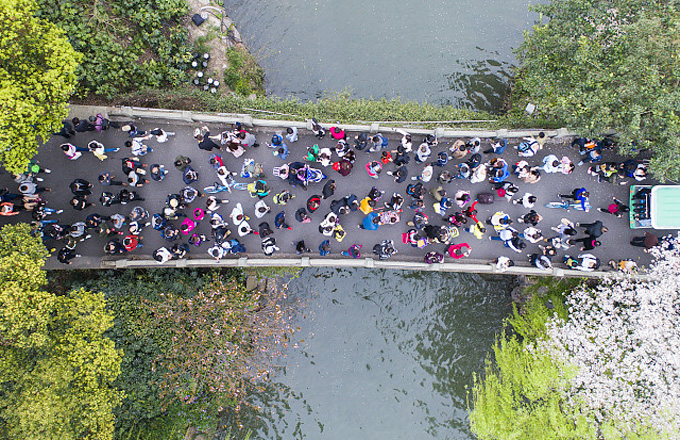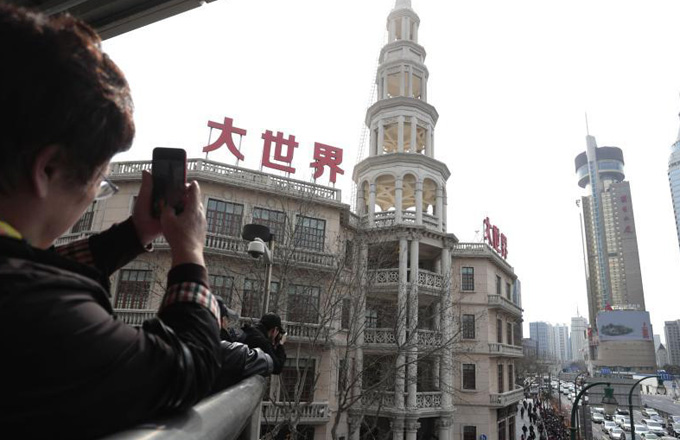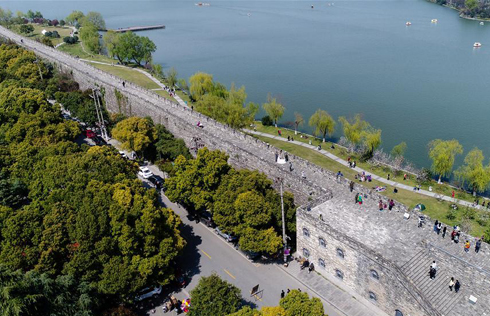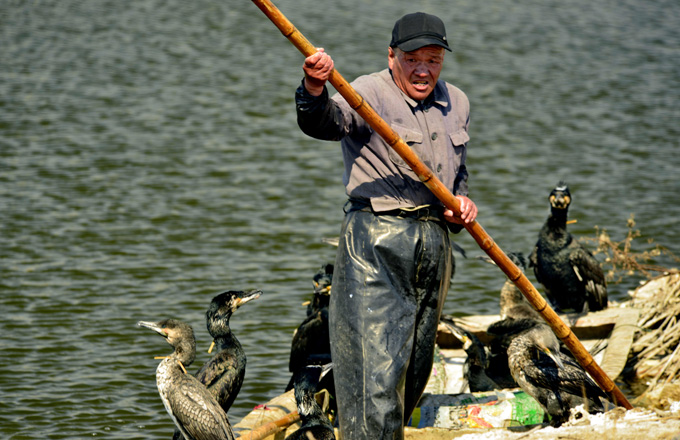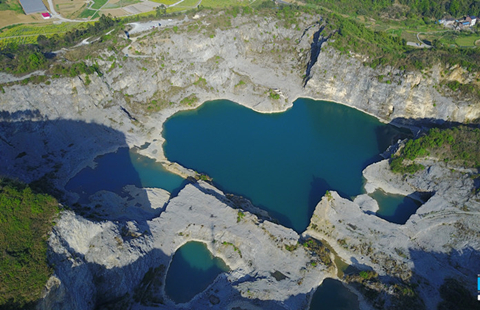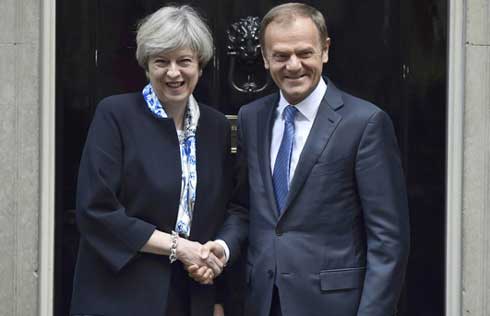

Rebuilding Hongbai after the 2008 quake was arduous but worthwhile, its former leader says.
Leading a town from ruin to restoration is no easy task, Hongbai town's former top official says. Huang Zhuo headed Shifang city's finance bureau in Sichuan province before the 2008 Wenchuan earthquake and was responsible for allocating recovery funds until he became Hongbai's Party secretary in 2011. The 40-year-old left his post to join Shifang's land resources bureau less than a month ago, soon after talking to China Daily and before the April 20 Ya'an quake. "Everyone has a house, and industry has recovered," he says. "I'm happy to see our town becoming better every day." Thanks to the post-2008 reconstruction, Hongbai's buildings can withstand magnitude-8 temblors, Huang says. The town did not experience any problems during the recent tremor, aside from landslides. No injuries were reported.
"We'd like to share our reconstruction experiences with Ya'an, including those dealing with the distribution of goods and materials, and children's psychological recovery," Huang says.
Hongbai's new Party secretary, Li Deli, says of the Ya'an tremor: "We have an efficient emergency-response system, so we could react quickly. Still, I was very nervous. Our communications were cut off. We sent officers to the villages and found everyone was safe."
The town's reconstruction as a modern and disaster-resistant settlement was a monumental achievement, Huang says.
Hongbai, home to about 30,000, was one of the hardest-hit areas in 2008.
The quake flattened the town in around 15 seconds. Only two houses were left standing. The disaster also claimed more than 1,000 lives and ruined most of the leading industries, including mining, farming and tourism.
"I faced tremendous pressure," Huang recalls. "The higher authorities had great expectations, and the whole world was watching. I had to turn that pressure into motivation."
Huang faced grassroots demands, too. For example, residents in Wuguiping village kept beseeching him for a better road. The motorway was narrow and often clogged by landslides during downpours.
"It was hard for the children to get to school and for locals to get around," Huang says. He went on to collect 1 million yuan ($162,000) in funding, and the road was completed last year.
"One million yuan is a vast sum for a rural township," he says. "But we have to improve villagers' lives with limited funds."
Huang's recovery responsibilities were not just material. They also included the psychological.
He recalled one resident became crushingly depressed after her 14-year-old son died in the disaster.
"She'd lost hope. She often visited the government asking for help," Huang recalls. So, in turn, he began visiting her home twice a week. "We realized we needed to help her find a purpose in life," he says.
When the woman wanted to farm fish, the government sent experts to train her. When she opened a rural resort, authorities provided free cement and timber, as well as helped her get bank loans and medical care when she fell ill, Huang says, adding: "Her life has got better."
A box of Earl Grey tea and some hand-embroidered shoe soles she gave Huang sit on his office shelf.
Huang believes the quake teaches leaders an important lesson: "Officials are just people. Almost every official lost someone in the quake."
Many officials' consciences nag them, he says. "We rushed out to save strangers and didn't take care of our own families. Most of us feel guilty."
Huang's aunt broke her leg and was saved by soldiers rather than family. He hurried to the ruins to save townspeople. But upon discovering professional rescuers had arrived, he returned to manage disaster-relief funds.
His reconstruction tasks, coupled with the everyday work that came with running a town, left no time for hobbies.
Huang previously played table tennis for the People's Liberation Army, wrote poetry, painted and practiced calligraphy. His ink brushes still sit on his desk, near a calligraphic work by his teacher that reads "Hongbai".
But while he has not had time to take up a brush himself, he has made time to encourage others to do so.
"We need culture to rebuild our tourism industry," he says. "That requires foresight. But our town is more beautiful than ever. People are hopeful."



